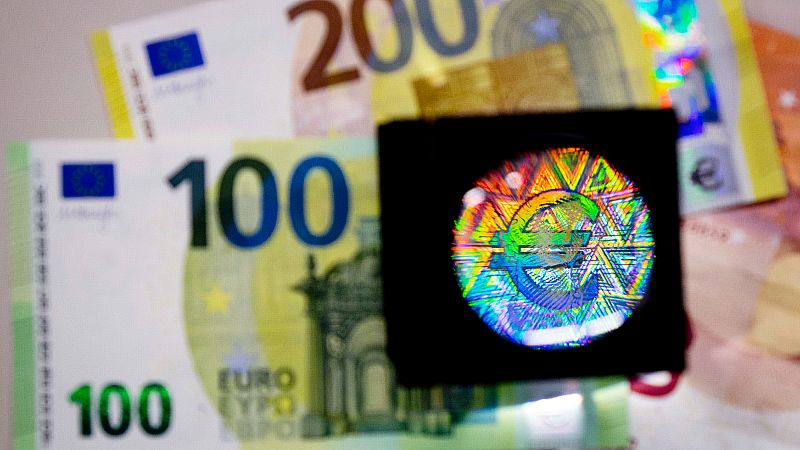ECB: Digital euro will be 'profit-making' for payment service providers

If launched, the digital euro will be “profit-making” for payment service providers, Piero Cipollone, a member of the European Central Bank’s (ECB) executive board, reassured MEPs on Thursday.
“We do not have the impression that this project will be loss-making. I think this is an assumption that needs to be proved,” Cipollone told members of the European Parliament’s economic affairs committee in Brussels.
“For what we know, the taking up of the digital euro will not be so huge that it puts in danger the financial stability, but will be enough to provide a signal to the central bank to pay for the infrastructure and to compensate the major actor for the investment,” he added.
According to Commission estimates, integrating the digital euro into the euro area system would cost between €2.8 and €5.4 billion. “We have seen around numbers which are six, ten times higher than that. The credibility of this number can be questioned to say the least,” Cipollone warned.
As public money, the digital euro would be free to use and accepted everywhere, but to make it worthwhile for banks and other providers to distribute, the Eurosystem is also proposing a compensation model designed to cover their costs and keep incentives fair.
The ECB is currently finalising the preparation phase for the potential launch of a retail Central Bank Digital Currency (CBDC), intended to complement cash. But before deciding whether to issue the digital euro, member states and the European Parliament must agree on its legislative framework.
For now, Parliament is at a standstill. Cipollone’s visit was the fifth of 14 scheduled exchanges with the economic committee since the Commission tabled its proposal in June 2023.
On 9 February 2024, then-rapporteur Stefan Berger (Germany/European People’s Party) presented his draft report. Since then, no vote has taken place, and in December 2024, Berger stepped down as lead MEP on the file.
He was succeeded by Spain’s EPP MEP Fernando Navarrete, who recently published a 27-page paper titled "Do we really need the digital euro: a solution to what problem exactly?".
In the paper, Navarrete, a state economist, argues that the digital euro is not the answer to problems such as the bloc’s dependence on non-European payment providers like Visa and Mastercard.
“The absence of fully operational retail CBDCs in other leading economies does not reflect a lack of technical capability. Rather, it evidences a collective caution rooted in sober assessments of the systemic implications,” he wrote, citing risks to financial stability, low consumer demand, and uncertain cost-benefit outcomes as reasons why other jurisdictions have abandoned, postponed, or avoided such projects.
Instead, the Spanish MEP calls for focusing on a wholesale CBDC, contending that circumstances have changed since the retail project was first proposed. He also argues that the ECB’s role should “evolve toward that of a neutral enabler.”
ECB: Cash needs a digital backup
The ECB is warning that Europe must move faster on the digital euro as people increasingly turn away from cash.
“Today cash is our only true fallback, but as society increasingly moves away from cash, we need to complement it with a digital version,” ECB board member Piero Cipollone told MEPs on Thursday.
Cash payments in the euro area have plummeted in just five years — from 68% to 40% of all transactions, and from 40% to only 24% of their value.
Cipollone argued that a digital euro could act as a safety net during crises, giving citizens a reliable public alternative if private systems fail. In a world of rising geopolitical tensions and sophisticated cyberattacks, he said, backup is critical.
“When critical services are interrupted, cities then expect public authorities to ensure continuity,” he said. “Payment services are not a luxury — they’re as essential as electricity or clean water for the daily life of our citizens.”
Talks among EU finance ministers are also gathering pace, with the Danish presidency aiming for a common position by the end of 2025. But the road ahead is rocky.
Several governments say more technical work is needed before any green light. “We have to find a fair compensation model and good distribution conditions for banks and, of course, we have to offer citizens a high level of privacy protection from day one,” said Germany’s Lars Klingbeil in July.
Privacy, bank compensation, and distribution aren’t the only sticking points. Ministers are also split over the impact on non-Euro countries, limits on how much digital euro citizens could hold, and even who should have the final say on whether the project launches at all.
Today

